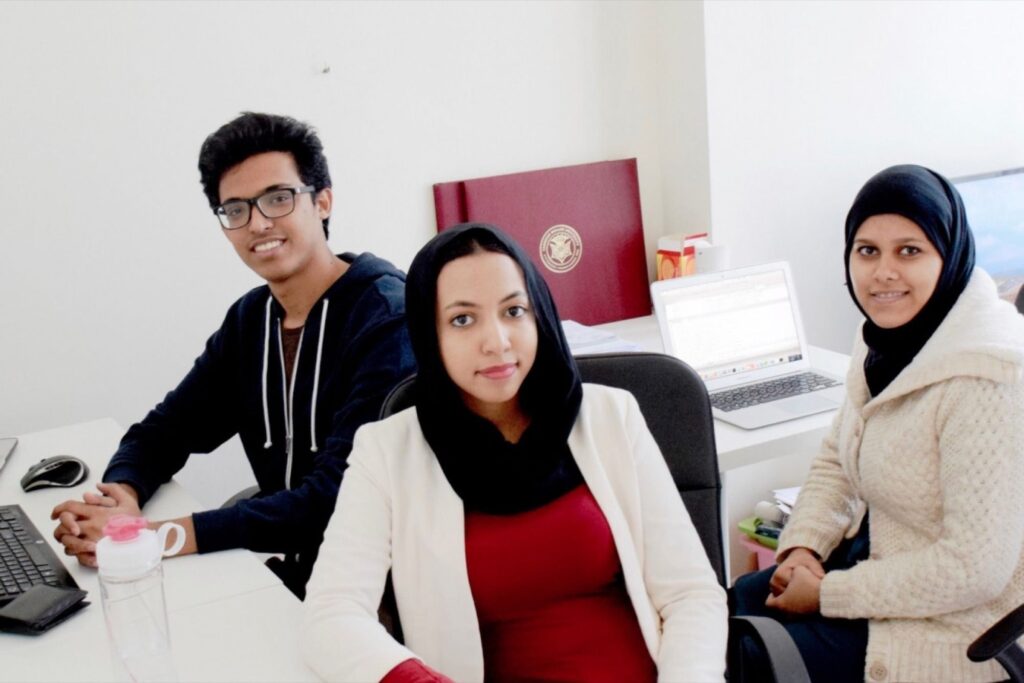In recent years, Qatar has been investing heavily in its youth—and one of the most exciting developments is the rise of innovation hubs aimed at supporting student founders. These are not just co-working spaces with flashy interiors. They are platforms for serious growth, learning, and business development. Young people in Qatar, especially students in universities, are now getting access to resources that were once hard to imagine in the region.
These innovation hubs are part of Qatar’s national vision to become a knowledge-based economy, and they are already changing the game for young entrepreneurs. Across the country, students with fresh ideas are getting the chance to turn their dreams into real businesses—with a lot of support along the way.
Turning Ideas Into Real Businesses
Innovation hubs in Qatar focus on helping students develop, test, and launch their ideas. Whether it’s a tech startup, a sustainable fashion brand, or a new food product, these hubs are designed to provide the right support at every step.
Most hubs offer training programs, workshops, mentorship, and networking events. Students also get access to labs, tools, and even funding opportunities. Some of the top hubs working with student founders include Qatar Science & Technology Park (QSTP), Qatar Business Incubation Center (QBIC), and the Digital Incubation Center (DIC).
At QSTP, for example, students can join the XLR8 program, a 10-week program that helps early-stage entrepreneurs take their ideas to the next level. It includes mentoring, business modeling, and pitching sessions to investors. Many university students have already used this program to launch startups that are now growing in Qatar and beyond.
Support from Universities and the Government

What makes Qatar’s innovation ecosystem stand out is the strong connection between universities, government bodies, and industry partners. Leading universities such as Qatar University, Hamad Bin Khalifa University (HBKU), and institutions under Education City like Carnegie Mellon and Georgetown University, actively encourage students to innovate.
Most of these institutions have their own entrepreneurship centers or programs. For example, Qatar University runs the Center for Entrepreneurship, which gives students the chance to participate in competitions, attend guest lectures, and connect with experienced mentors.
The government is also playing a big role. The Ministry of Communications and Information Technology (MCIT), along with Qatar Development Bank (QDB), supports innovation hubs by providing grants, policy support, and long-term funding. These partnerships make it easier for young people to take their first step into the world of entrepreneurship.
Success Stories: Students Becoming Founders
Qatar’s push to support student founders is already showing results. Many young entrepreneurs who started with an idea in university are now running growing businesses. One such example is Maha Al-Dosari, who founded a tech startup focused on Arabic language learning tools. She first developed her idea during a university course and later joined an accelerator program at QSTP. Today, her app is being used in classrooms across the region.
Another student-led success is “EcoMove,” a green transportation startup created by a group of engineering students. With support from their university and a local innovation hub, they built a prototype of an electric scooter designed for city use. Their startup has now attracted funding and is being tested in pilot zones around Doha.
These are just two examples of how innovation hubs are turning students into business leaders, and there are many more in the pipeline.
Building Entrepreneurial Skills, Not Just Startups
While building successful companies is the ultimate goal for many, Qatar’s innovation hubs also focus on teaching entrepreneurial thinking. Students learn to solve problems creatively, work in teams, and present their ideas confidently. These are valuable life skills, whether or not they launch a startup.
Many programs offer hands-on workshops in areas like design thinking, business modeling, and financial planning. This practical education complements what students learn in classrooms and prepares them for real-world challenges.
Entrepreneurship competitions are also a popular way for students to test their ideas. Events like the Arab Innovation Academy and QBIC’s LeanStartup Program provide students with a platform to pitch their ideas in front of experts and investors. Even those who don’t win get helpful feedback and new connections.
A Culture of Innovation Is Growing
One of the biggest changes in recent years is the shift in mindset. More and more students in Qatar now believe that starting a business is a real option for their future. Ten years ago, many young people aimed for government jobs or traditional careers. Today, there is growing excitement around entrepreneurship.
Social media also plays a role in this shift. Young founders often share their journeys online, inspiring others to take risks and explore new paths. Schools and families are also becoming more supportive of creative thinking and business ideas.

At events and hackathons, it’s not uncommon to see students as young as 16 or 17 building prototypes and pitching to judges. This early exposure to innovation is helping Qatar create a generation that is confident, curious, and ambitious.
Challenges Still Remain
While progress has been strong, there are still challenges. Some students face difficulties in finding enough funding or balancing studies with startup life. Others need more exposure to international markets and investor networks. Language and cultural barriers can also limit growth, especially for startups aiming to scale beyond the region.
However, many hubs are aware of these issues and are working to solve them. Some have introduced flexible programs for students with busy schedules. Others are building bridges with global incubators to help local founders grow internationally.
More support is also needed for female entrepreneurs. While Qatar has many women-led startups, cultural expectations can still pose challenges. Innovation hubs are now organizing women-focused events and mentorship sessions to encourage more female students to step forward.
The Future Looks Bright
Qatar’s innovation hubs are just getting started. As more students join entrepreneurship programs, the country is seeing a rise in creativity, new ideas, and successful businesses. With the support of universities, the government, and industry leaders, Qatar is well on its way to becoming a regional hub for youth-led innovation.
For students in Qatar today, the path from classroom to boardroom has never been clearer. With the right mix of passion, support, and opportunity, the next big founder might already be working on their startup idea from a university dorm room.
Also read: Gulf Smartwatches and Wearables Are Changing How We Live Today



